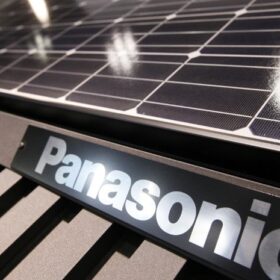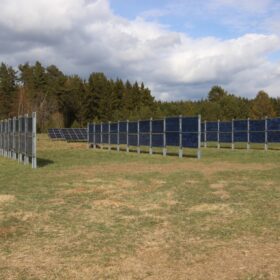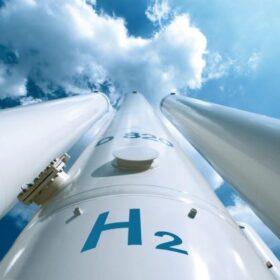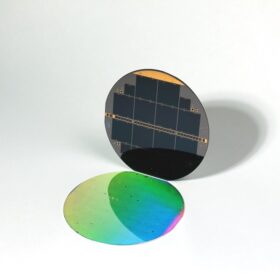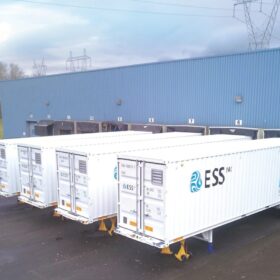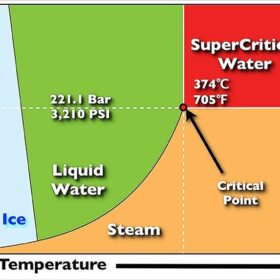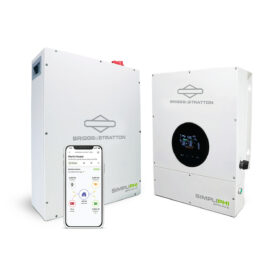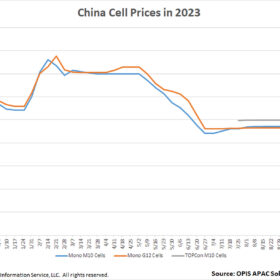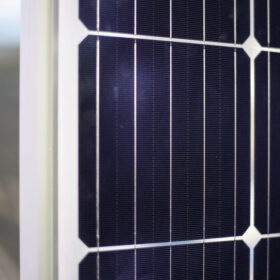Panasonic introduces half-cut HJT residential solar modules
Panasonic unveiled its new residential solar modules – including half-cut heterojunction (HJT) models, along with a home battery system and energy management device – at the recent RE+ trade show in Las Vegas.
France allocates 1.5 GW in ground mounted PV tender
The French government has awarded 129 projects an average price of €0.0824 ($0.0868)/kWh in its latest ground-mounted tender. This represents the largest capacity since the beginning of the tender series held by the French authorities.
Vertical agrivoltaics to reduce PV curtailment, increase water efficiency
An international research group has analyzed a vertical bifacial agrivoltaics system in a drought-stricken part of Chile. They say that the solar array can improve water efficiency for crop irrigation, while the vertical system configuration optimizes PV power generation throughout the day, minimizing curtailment.
The Hydrogen Stream: Germany expands global hydrogen alliances
Germany advanced its hydrogen ambitions this week with a fresh call for the International Green Hydrogen Promotion Program in Latin America, a collaborative deal with the UK government, and a tie-up between DHL and Sasol for sustainable aviation fuels based on green hydrogen (eSAF).
Fraunhofer ISE, AMOLF claim record efficiency of 36.1% for silicon-based multijunction solar cell
The two research institutes said the multijunction solar cell is based on silicon, gallium indium phosphide (GaInP) and gallium arsenide (GaAs). The device utilizes a specially designed metal/polymer nanocoating that reportedly optimizes the distribution of light scattering beyond the total internal reflection critical angle in the cell.
Honeywell invests in US iron flow battery specialist ESS
Honeywell purchased $27.5 million in ESS common stock and intends to purchase $300 million in ESS product, with $15 million prepaid. The collaboration enables Honeywell to integrate ESS technology into its global offering, and ESS gains license to Honeywell’s flow battery intellectual property.
Recycling solar panels via supercritical water tech
A Brazilian research group has developed a new method that uses the unique properties of supercritical water to recycle end-of-life solar panels. The scientists claim the novel approach is able to achieve a 99.6% organic degradation, without using toxic or hazardous chemicals.
Briggs & Stratton launches new lithium iron phosphate battery packages
The battery packages include a battery, an inverter and a control system. The US manufacturer claims its storage systems have a lifespan of over 10,000 cycles and a depth of discharge of 80%.
China solar cell prices hit record lows
In a new weekly update for pv magazine, OPIS, a Dow Jones company, provides a quick look at the main price trends in the global PV industry.
P-type solar products may be phased out by 2026 as n-type tech ‘rapidly’ expands
The rise of cost-effective TOPCon cell technology last year led to a ‘surge’ in production demand for solar n-type cell technology, with leading industry analysts TrendForce prophesying PERC cell capacities ‘may’ be phased out in two to three years. The company’s experts, however, warn that oversupply for p-type cells and modules may increase the price gap between n-type and p-type products in the upcoming months.
